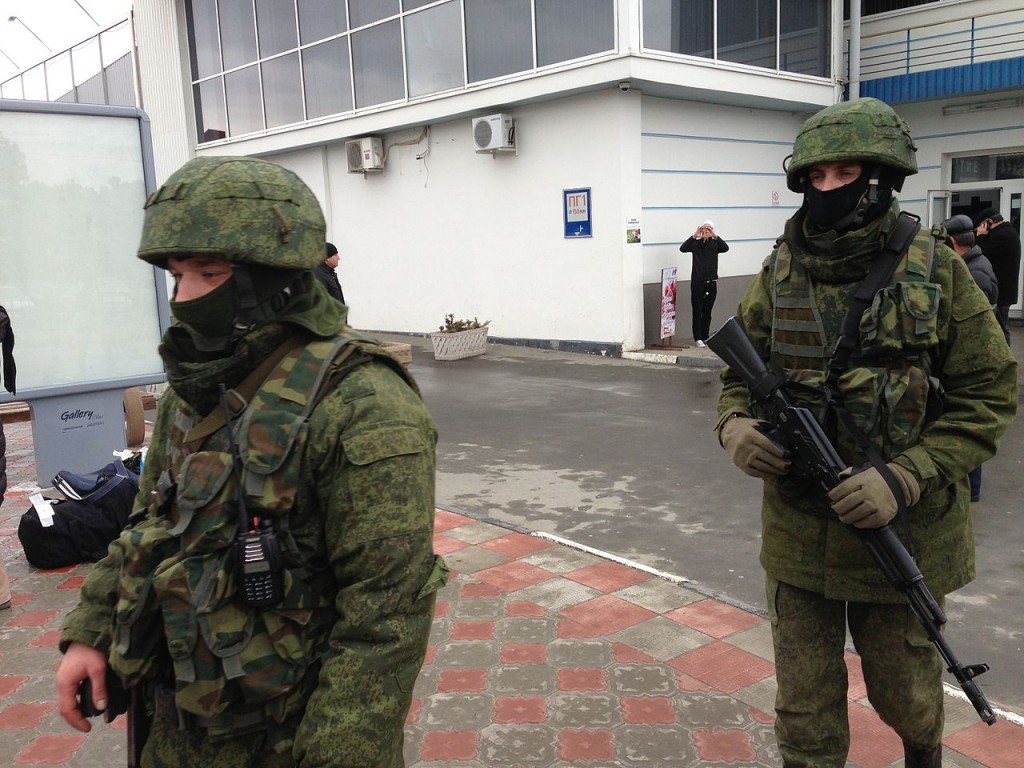Whom does a boycott harm more – Russia or Europe?
The debate over whether to impose economic sanctions on Russia in order to punish it for the annexation of Crimea is dividing Europe, especially Germany. That’s no surprise given that German trade with Russia amounts to about 40 billion dollars, almost the same as for the United States, which has an economy four times as large as Germany. About 7,000 German firms have subsidiaries in Putin’s empire. Daimler and VW build trucks and cars there, Siemens builds power plants, which are then operated by the German energy company E.On, Deutsche Post provides logistics services. BASF, Bosch, and the mid-sized agricultural machinery manufacturer Claas are all represented there as well. German engineering, pharmaceuticals, and services are propelling Russia into the modern age. It’s no wonder that Siemens chief Joe Kaeser paid a personal visit to Putin to promise his company’s continued cooperation on the very day that Chancellor Merkel voiced her support for stricter sanctions.
German companies are trying to soften Angela Merkel’s critical position on Putin. The prevailing sentiment, “Why pay for Crimea?” sounds a lot like “Why die for Danzig?,” the slogan that French pacifists used in 1939 to imply that a city like Danzig, the first to fall victim to Hitler’s expansion strategy, was not worth a war with Nazi Germany.
Historical comparisons are never fully correct. Vladimir Putin is no Hitler, but he does demonstrate the typical mechanisms of authoritarian regimes. On the other side, there are the democracies, which have their own ways of dealing with things. Conflicts are bad for business in a globalized world with tightly interwoven supply chains and sales markets. When businesses are worried about their annual profits and quarterly reports, their concern quickly spreads to politicians, who are anxiously keeping tabs on growth rates, tax revenues, and unemployment rates. In Germany, it was the post-war Economic Miracle that stoked people’s passion for democracy, and not the other way around. Unlike economic miracles, economic crises are boom times for authoritarian, anti-democratic movements. Autocracies don’t need to take GNP or wage increases into account, at least not in the short term. Their calculus is not one of dollars and cents, but of national pride and prestige.
The cold calculation of power politics also comes into play. Autocracies do not need to justify or even explain themselves the way that democracies do. They view this as a weakness of democracy and know how to exploit it. Decision-making in a democracy is slow and arduous, and that makes it hard to compete with countries ruled by a small cadre of leaders that can react quickly. A European summit in Brussels lasts longer than it took Russia to annex Crimea. It took ten years of countless resolutions, peace missions, and talks until the West intervened in Kosovo. By contrast, Putin only watched the crisis unfold on the Maidan for a couple months before armed troops wearing uniforms without any national identification made the annexation a fait accompli. Public debate has a laming effect, while a well-oiled state propaganda machine can mobilize public support and organize a jubilant parade at the right time and the right place.
Democracies are usually weakly armed. Under Barack Obama, the United States is downsizing its military and investing in healthcare instead, much like the Europeans redirected the peace dividend after the end of the cold ware into entitlements, leaving these nations with a limited ability to defend themselves. Democracies like to buy themselves out of bloody conflicts. Helmut Kohl paid billions to avoid sending the Bundeswehr into the first Gulf War. Democracies may grit their teeth when they do it, but they are willing to sacrifice the weakest territories and their people to avoid war. French Prime Minister Édouard Daladier and Great Britain’s Neville Chamberlin were neither loony nor cowardly when they gavethe Sudetenland, and thus Czechoslovakia, to Hitler in 1938. They were strategists with a keen understanding of Realpolitik who wanted to buy time for a military buildup.
Autocracies also have their weaknesses. An all-powerful regime will destroy freedom, shackle the initiative of the people, and sacrifice economic efficiency to benefit the clientele of the rulers. In the long run, that axiom of American politics, “It’s the economy, stupid!” applies to autocrats as well. In his sensational analysis of “Hitler’s beneficiaries,” Götz Aly shows how Hitler drove Germany into economic ruin: employment programs, expensive welfare entitlements, and above all military buildup. Hitler was driven by racial hatred, but a look at the budgets of the time show how his policy of gifts for the masses strained the armament effort. According to Aly, “With Germany’s financial situation worsening by the day, the Nazi leadership was keen to forge ahead with its annexation of Czechoslovakia and its domestic pogroms against Jews. The state treasury needed money. Despite various accounting tricks, the government was just barely avoiding bankruptcy […]. The only hope was to go on the offensive.” Hitler bought the public’s approval with generous welfare benefits, most of which continue to apply to the present day. As General Patton’s elite armored divisions advanced on Würzburg, deep in the heart of Germany, Hitler’s government in Berlin, nearly entirely surrounded by the Soviet forces, voted for an increase in pensions. Even as the Götterdämmerung of the Third Reich was playing out, public approval was still being bought with cash.
History does not repeat itself, except occasionally as a farce. As early as 2005, Putin’s then economic advisor Andrei Illarionow, who now teaches in the United States, warned that Putin’s authoritarian leadership style in favor of his club of oligarchs was weakening the economy and retarding the country’s development, degrading Russia to a mere exporter of raw materials. This process has only accelerated since then. Putin is propping up more and more unprofitable companies with Gazprom billions. The Russian economy is beginning to resemble the Soviet system. Russia has thus remained almost a developing country, an “Upper Volta with atomic weapons,” as former German Chancellor Helmut Schmidt scoffed in the 1970s. Military strength must be backed by a strong economy, while a weak economy is a symptom of an authoritarian regime that always knows better, blocks the alternatives, and prevents initiative.
In 1944, Friedrich August von Hayek described in “The Road to Serfdom” how Soviet Socialism first destroyed freedom and then economic productivity. Liberal democracies adapt and develop the strength to stand up to challenges when they are placed under pressure. Winston Churchill’s platform in 1940 promised only “blood, sweat, and tears,” yet he was elected. After Pearl Harbor, the United States transformed its consumer goods industry into the most enormous arms industry in the history of the world. Managers were drafted to organize the world’s most efficient military machine.
In the short term, democracies seem weak, disunited, and listless. But in the long term, the self-defense forces of free societies  prevail. Russia is ailing, and it needs the West more than the West needs Russia, even if the quarterly reports of German companies suggest otherwise.
prevail. Russia is ailing, and it needs the West more than the West needs Russia, even if the quarterly reports of German companies suggest otherwise.
Roland Tichy is editor-in-chief of Germany’s leading economic weekly Wirtschaftswoche and a regular columnist for the JVG
